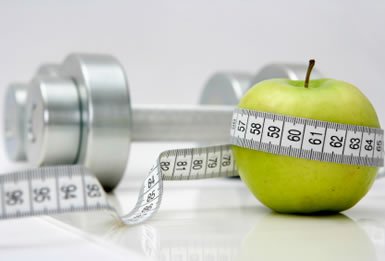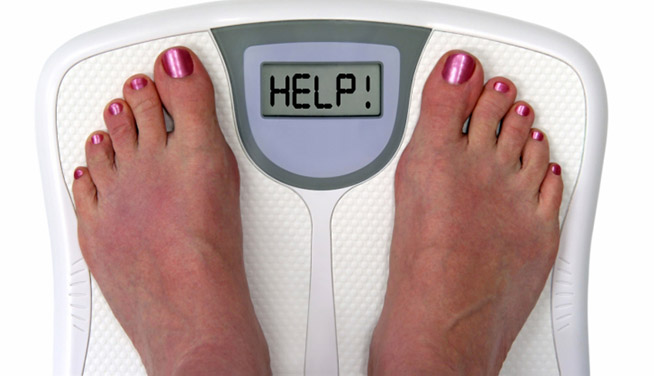The transition is a journey of healing. You can only be in your transition if you are improving your nutrition and lifestyle habits.
During the transition one’s hormones will change in response to the nutrition and lifestyle changes that are being made and this allows the body to heal. However, balanced hormones will not happen immediately—there are sequential steps of healing that everyone must take.
When a patient starts their transition process by improving their habits, their body will begin to rebalance its hormones. Their body will also rebuild at the cellular level with nutrients that were not available during previous poor habits. The more damaged the current metabolism, the longer it will take for this process to be completed.
When one has healed their metabolism, they are primed to lose fat weight, if needed. Once they have lost all their excess fat, they are through steps 1 and 2.
The Three Transition Stages
For most people, the transition (step 1) to a healthy metabolism consists of three main stages. Here is what you may expect as you journey through your transition to health. You begin at your initial starting point and then enter 1) a healing phase. Then you enter a 2) fat burning phase, if you need to burn fat before you finally reach a 3) healed state. Depending on your current metabolism, your body may skip the healing and/or fat-burning phases.
Let's look at each stage in more detail:
Healing phase
Fat-burning phase
Healed state
The Initial Starting Point
The initial starting point is your current metabolism type and age when you start improving your habits and begin entering your transition. Listed to the right are the four metabolism types an individual can have.
Insulin-sensitive with healthy adrenal glands
Insulin-sensitive with burned-out adrenal glands
Insulin-resistant with healthy adrenal glands
Insulin-resistant with burned-out adrenal glands

These metabolism types are not genetic but acquired. Everyone begins life insulin-sensitive with healthy adrenal glands. It is only after years of poor nutrition and lifestyle habits that you may become insulin-resistant or have burned-out adrenal glands—or have both conditions.
Your age and how long you have had your current metabolism affect the duration of your transition. The older you are and the longer your metabolism has been damaged, the longer it will take for you to complete your transition.
Insulin-sensitive
It is normal to be insulin-sensitive. You are insulin-sensitive if your body responds to all the actions of insulin, including the ability to make and store fats.
The following is what happens when you eat carbohydrates if you are insulin sensitive:
Sugar is taken up by your liver.
Excess sugar in your liver is turned into triglycerides and cholesterol.
Triglycerides and cholesterol are taken up by various cells of your body.
Sugar is also taken up by your cells.
When all the sugar and fats are in your cells, blood-sugar levels start to drop and insulin levels go back down.
You eat again and the whole process starts all over
Insulin-resistant
Eventually, from sustained high levels of insulin, you become completely insulin-resistant. All your cells are completely overfilled with fats and sugar, and they barely respond to the action of insulin. At this point you usually have high triglyceride blood levels. (High triglyceride levels are not indicators of insulin resistance only. Smoking, stress, birth control pills and drinking alcohol can raise triglyceride levels in your bloodstream also, but that does not necessarily mean that you are insulin-resistant. Do not diagnose yourself as insulin-resistant from your triglyceride blood test alone.)
When you are insulin-resistant, you have high fasting insulin levels, you usually carry your excess fat weight around your midsection and you have one or more of the following symptoms or diseases.
Abnormal cholesterol profiles: High triglyceride levels with low high-density lipoprotein (HDL) levels and high apolipoprotein B levels.
Hypertension: Sustained high blood pressure.
Type II diabetes: Sustained high levels of sugar in the bloodstream.
Coronary atheroscelrosis: Plaques in the heart arteries which may cause a heart attack when they rupture.
Cerebral atheroscelrosis: Plaques in the brain which may cause a stroke when they rupture.
Cancers: Abnormal cell growth. Breast, prostate and colon cancers are the most common cancers associated with high insulin levels.
Stein Leventhal Syndrome (SLS): SLS is a female clinical condition of infertility (anovulatory menstrual cycles), acne and/or facial hair.
There are three paths that lead to insulin resistance:
Years of high insulin levels due to poor nutrition and lifestyle habits.
Years of high adrenaline and/or cortisol levels due to poor nutrition and lifestyle habits.
Years of high insulin, adrenaline and cortisol levels due to poor nutrition and lifestyle habits.
If you recognize that you are on any of these paths, now is the time to change your habits!
Your Goal
Your goal is to stay or become insulin-sensitive and to have healthy adrenal glands or to heal them. Therefore, the goal metabolism to have is insulin sensitive with healthy adrenal glands and then and only then will the weight loss start happening! Know that there is hope and weight loss just has to be approached holistically with the ultimate goal is changing how your body responds to insulin. This way you lose weight AND keep it off!

